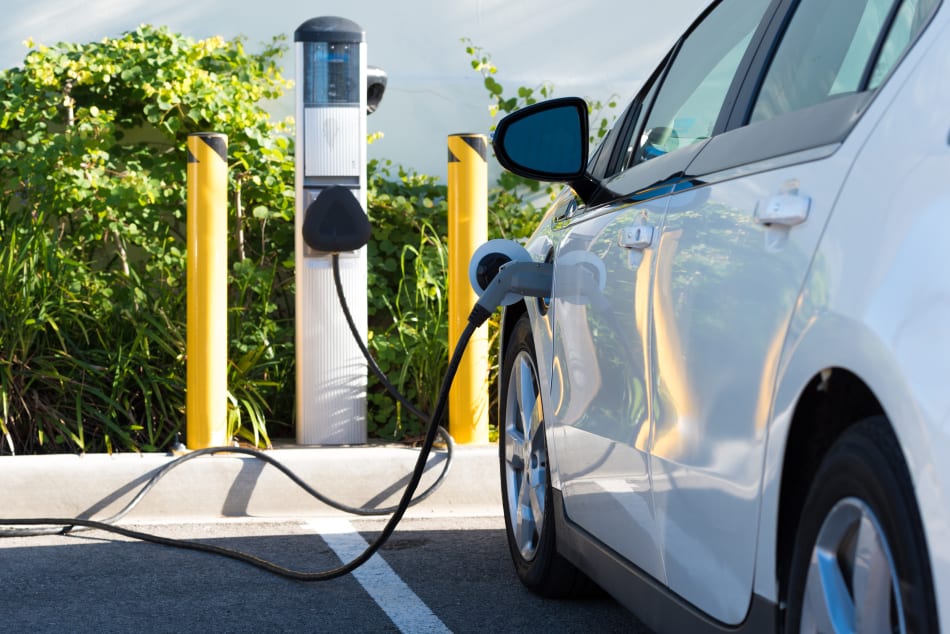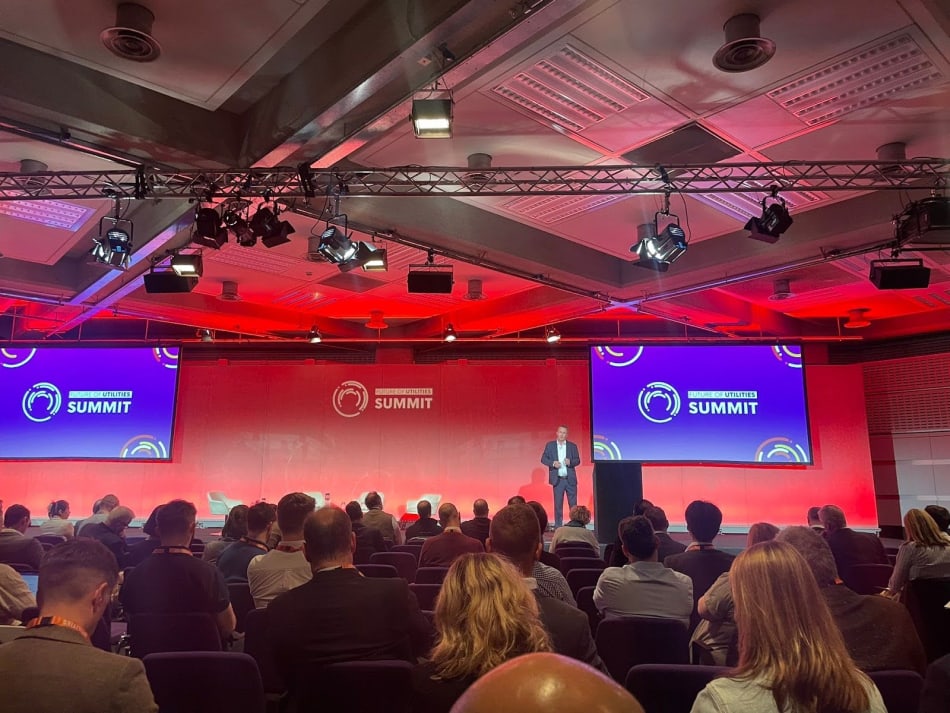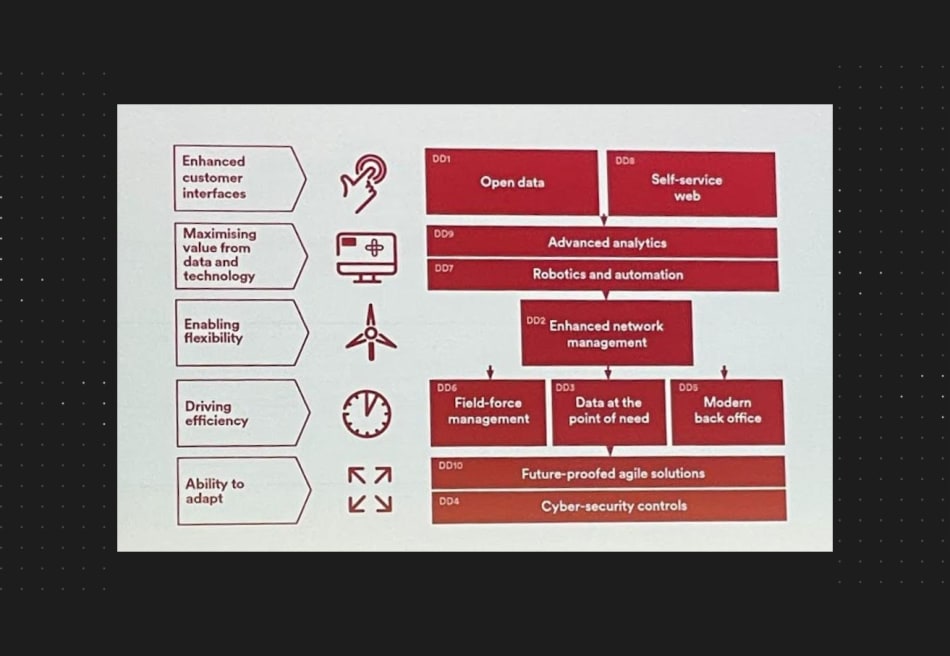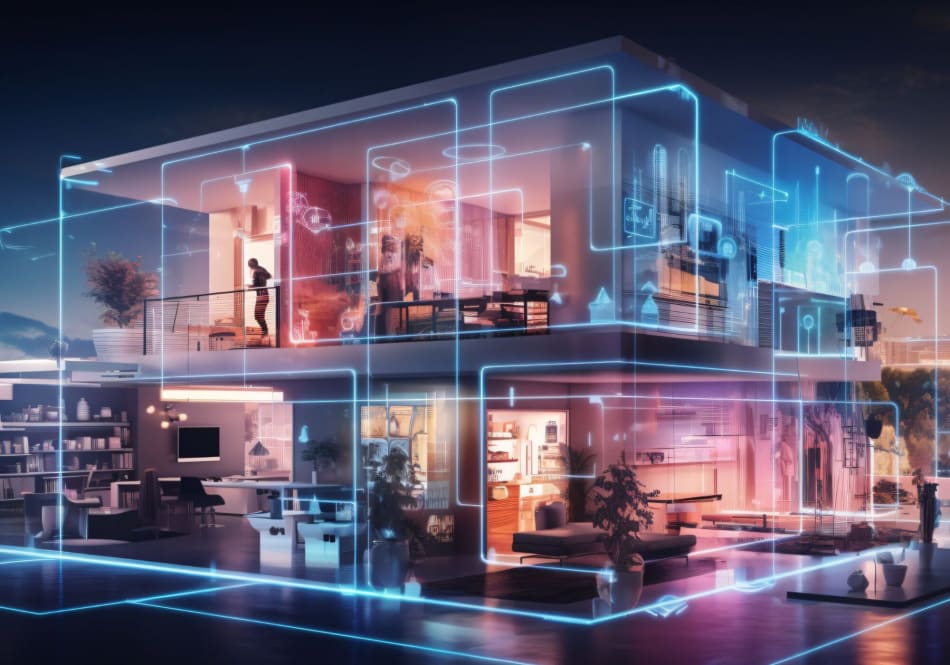
The Future of Utilities Summit, held on the 19th & 20th of June, brought together industry leaders across retail energy, energy networks and other utility sectors, to discuss the critical role of digital innovation, customer-centric strategies, and sustainable practices in achieving net zero emissions targets.
Our Client Principal Tom Williams enjoyed two days at the QEII London, where he attended a multitude of sessions including keynotes from prominent figures such as Chris Norbury, Phil Jones, Laura Sandys, and David Wright… all of whom shed light on the multifaceted approach required to navigate the complexities of decarbonisation.
As part of our weekly roundup of events we’ve attended, Tom shares some of what he saw and his view on the event.
Let’s find out more.
Introduction
Attending the Future of Utilities event, I was excited to hear from energy sector insiders about the importance of technology in driving forward their change agendas.
I was particularly enthused to hear about how digital products and experiences were redefining the meaning of excellence and efficiency across retail, energy networks, electric vehicles and utilities.
During the two day conference I took notes on some of the key talks and I will play them back to you now.
The Transforming Landscape of Energy Retail: Investing in people and planet
Chris Norbury, CEO of E.ON UK, emphasised that the journey to net zero must be centred around customers and communities. He highlighted the importance of engaging local businesses and communities in the transition to a low-carbon future, as they will have to engender radically different behaviours as we move forward.
Chris underscored the complexity of decarbonisation in general, but also advocated for a digitally-driven approach to simplify and accelerate this change. This focus on digital solutions aligns with the broader industry trend towards leveraging technology to enhance efficiency and customer experience.
It was great to hear first hand from someone right at the forefront of the UK path to net zero, and see how the challenge is being accepted with vigour and optimism.

Building a Net Zero-Ready Grid
Phil Jones, CEO of Northern Powergrid, focused on the essential transformation of the power grid to support clean energy.
He called for increased collaboration and innovation across the sector to unlock grid capacity and enhance renewable energy generation. Jones announced a significant investment of £100 million in digital technologies over the next five years to establish the technological foundation for business transformation.
He also stressed the need for regulatory frameworks to evolve alongside technological advancements to prevent them from becoming barriers to progress. Central to his vision is the belief that all changes should ultimately benefit the customer.
Modernising and Digitalising Energy Systems
Laura Sandys, Non Executive Director of SSE transmission delivered a compelling and passionate talk on the future of energy systems, emphasising the need for modernisation, digitalisation and customer-centric design.
She pointed out that understanding customer behaviour in more nuanced ways is crucial. Laura also highlighted the potential synergies between financial services and the energy sector.
She noted the significant impact of electric vehicle (EV) adoption, predicting that the current growth trajectory would require the equivalent of three nuclear power stations to meet demand.
Laura advocated for cross-sector employment to bring fresh perspectives and best practices from other industries into the utilities sector. Highlighting the need for a digital spine to run though all that they do to communicate, supply and report on all that they do.

Digital, Green, and Efficient Future
David Wright, Chief Engineer at the National Grid, spoke on the importance of integrating onshore and offshore energy models, particularly in exploiting the wind resources in the North Sea.
David highlighted the role of artificial intelligence (AI) in transforming energy supply chains, from modelling and forecasting to contract management.
He emphasised the potential of AI to enhance efficiency and sustainability in energy production and distribution. David also stressed the importance of sustainable construction practices to support the broader goal of net zero emissions.

Role of Software Development in the Net Zero Transition
From a software development partner perspective, the insights from the summit underscore the critical role of digital innovation in the energy sector. The following key areas were highlighted:
- Customer-Centric Solutions: Developing platforms and applications that provide seamless customer experiences, enabling consumers to engage with and contribute to the energy transition. This includes tools for energy consumption monitoring, demand response, and community energy projects
- Grid Modernisation: Investing in digital solutions to enhance grid capacity and reliability. This involves developing software for grid management, integrating renewable energy sources, and improving real-time data analytics for better decision-making
- AI and Machine Learning: Leveraging AI for predictive maintenance, energy forecasting, and automated contract management. These technologies can significantly improve efficiency and reduce operational costs
- Interoperability and Integration: Creating interoperable systems that facilitate seamless communication between different parts of the energy ecosystem. This includes integrating energy management systems with financial services and other sectors to create a holistic approach to energy management
- Sustainable Practices: Developing software solutions that support sustainable construction and operation practices, such as using AI for material optimisation and lifecycle assessment
The Future of Utilities Summit highlighted the urgent need for digital transformation in the energy sector, driven by customer-centric approaches and innovative technologies. As a software development partner, there is a significant opportunity to contribute to this transition by developing solutions that enhance efficiency, sustainability, and customer engagement in the journey towards net zero emissions.
Waracle has worked across retail Energy and Energy networks for the last decade and developed solutions from retail energy apps to call centre digital transformations, all of which have contributed significantly to our journey to net zero.

Authors
Commercial Director
Related

Article • 08 May 2025
Embracing the AI First Future

Article • 26 February 2025
Turning data into your competitive advantage

Article • 31 January 2025
Cultivate your ‘data as an asset’ agenda

Article • 25 September 2024
Can you build emotional loyalty through digital experiences?

